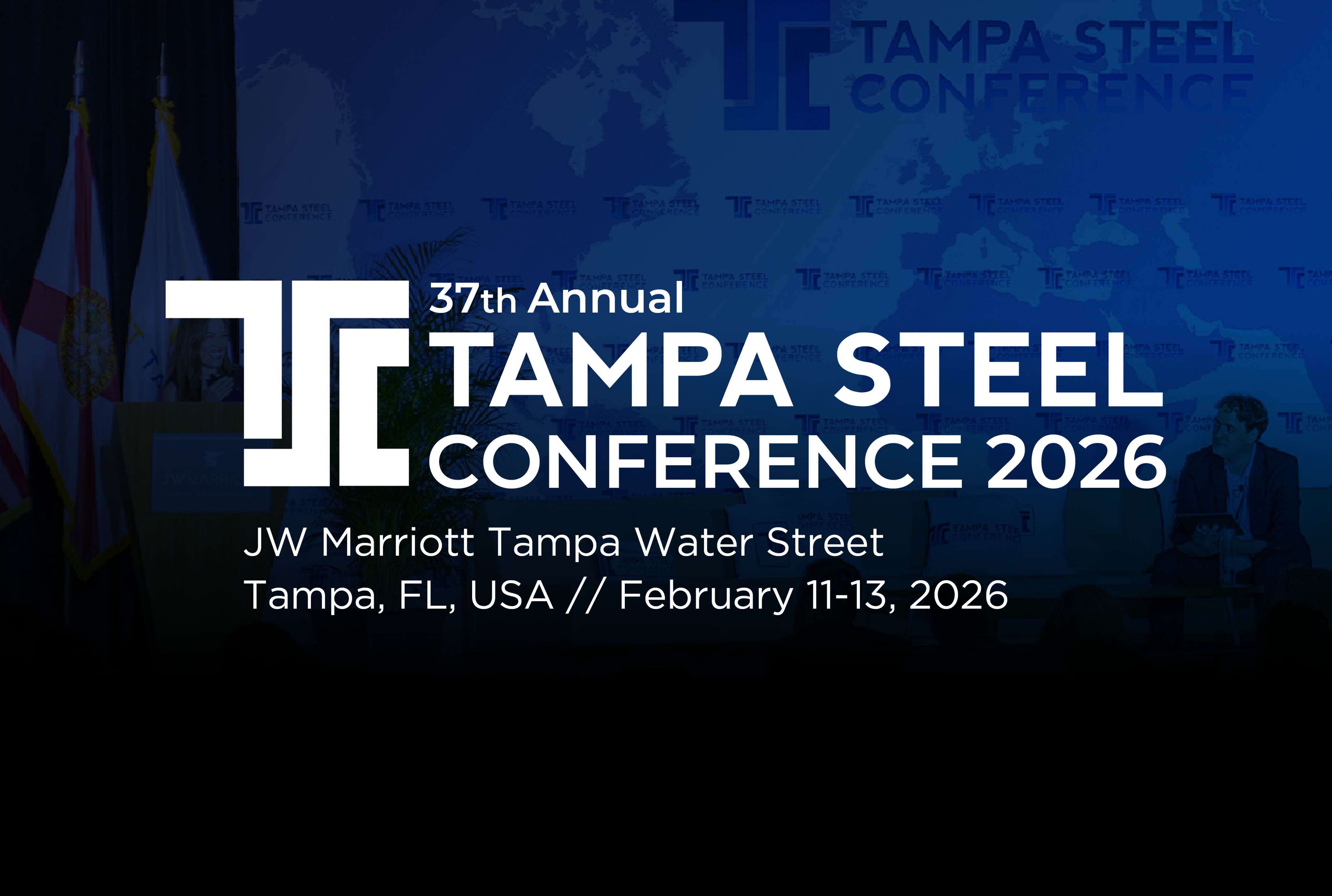Community Events

September 19, 2024
SMU Community Chat: Steel Warehouse CCO on labor woes, demand, and more
Written by Laura Miller
They say failure can lead to success. Such was the case for Nate Lerman. While liquidating the inventory of his failed toy truck business, he realized the profit potential in steel, which ultimately led to the creation of Steel Warehouse.
Since its founding over 75 years ago in South Bend, Ind., Steel Warehouse has remained a family-owned business. It has grown into a multinational flat-rolled steel service center and processor with over 2,100 employees. Primarily in the US Midwest, it has 15 locations across the US, Mexico, and Brazil.
On Wednesday, a key member of the Lerman family joined Michael Cowden for an SMU Community Chat. Read on for some highlights of the conversation (SMU subscribers can watch a replay of the entire conversation on our website.)
Marc Lerman, grandson of founder Nate Lerman, currently serves as chief commercial officer of Steel Warehouse. Marc began his career trading as a young man at the Chicago Board of Trade. Once his beer money ran out, he had to get serious. (As Cowden pointed out, that might be a more common career progression than one would think!) That’s when he joined the family business, where he has remained for over 35 years.
Ingenuity in labor woes
Securing skilled labor has been a hurdle for the company in recent years. Marc said the hiring environment has improved somewhat, but finding and retaining skilled workers remains challenging, especially in technical and maintenance roles.
One solution to address this is an apprenticeship program the company developed years ago. The program includes classroom instruction and hands-on training and has been “very, very successful,” according to Marc.
Another solution to labor shortages is automation, with Marc noting that automating certain roles can help alleviate hiring pressure in a tight labor market.
Demand and the tale of varied markets
Regarding steel demand, Steel Warehouse has seen discrepancies across geographic regions, with certain markets experiencing slowdowns while others show more resilience. Demand from the company’s end-use markets has been varied. Automotive and truck demand is flat, he said, while energy projects, including solar, remain inconsistent.
Marc attributed high inventories at service centers to recent declines in order volumes. Still, he remains optimistic that inventory levels will normalize over the next few months.
Cowden circled back to an earlier conversation with Marc when the spread between hot-rolled coil and plate had ballooned to as much as $800 per short ton. It’s since fallen by more than $300/st. Marc said shifting supply-demand dynamics will continue to drive fluctuations and cycles in the spread.
For example, plate prices will face downward pressure as more plate enters the market, and the spread will narrow. If/when “that infrastructure people love to talk about” ever comes, plate demand will rise, and the spread will widen again, he said.
Marc talked a little about product substitution as a strategy during times of steel pricing volatility. He said Steel Warehouse’s approach isn’t entirely dependent on the price spread, but more on the productivity and quality advantages of using a different product.
And a sweeping Q&A
An audience member inquired about Marc’s thoughts on the outcome of the U.S. Steel/Nippon deal. “We do business with U.S. Steel, and we’re going to do business with U.S. Steel,” regardless of who owns it, he replied. “It’s quite obvious” the deal isn’t going to happen before the elections in November, he said.
Someone else asked about Marc’s outlook for consolidation in the service center space. He said many smaller, family-owned companies sold when valuations were high after strong years in 2021 and 2022. As the market has since softened, it will be a challenge for any family business without a succession plan looking to sell now, he commented.
On Mexico, Marc noted political uncertainty on both sides of the border and commented, “The shining is certainly not there today as it was in the past.”
Marc’s chat with Cowden also touched on trade and supply chain issues. The CCO said the big issue for his company is that there’s been less of a focus on imports of finished products and more action taken against steel products.
Be sure to join us for our next SMU Community Chat on Wednesday, Oct. 2 at 11 a.m. ET. We’ll catch up with Jeremy Flack, founder and CEO of Flack Global Metals. You can register here.






